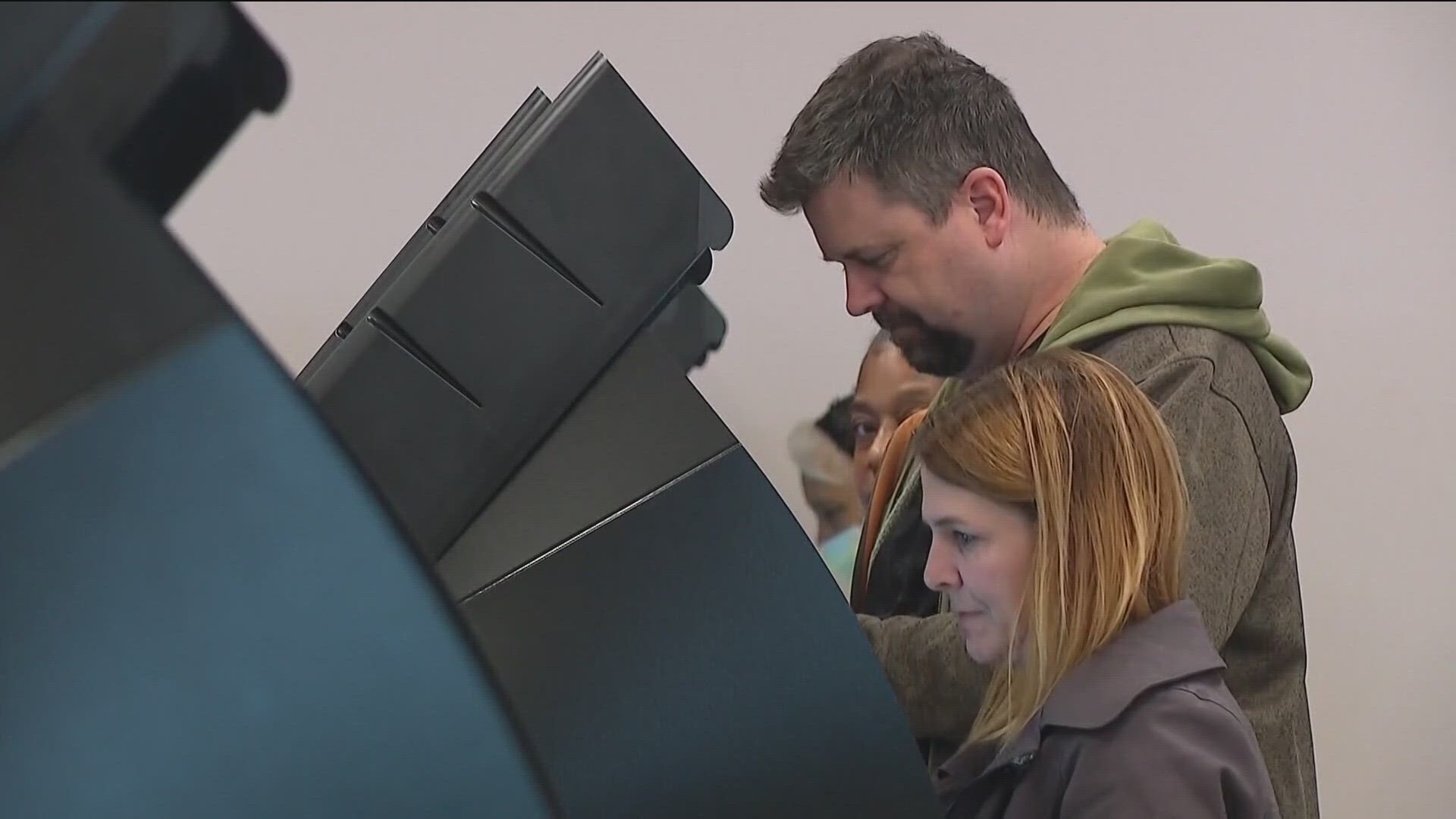COLUMBUS, Ohio — Some state lawmakers are working on a bill that would effectively ban ranked-choice voting in Ohio, a method of voting that isn’t used anywhere in Ohio at this time.
Ranked choice voting allows voters to rank candidates on a ballot from most preferred to least, instead of allowing voters to choose just one.
If a voter’s first choice gets the least number of votes of all candidates, their vote counts for their next choice instead.
Proponents say ranked choice voting results in more representative outcomes and helps ensure third party candidates don’t act as a “spoiler” for another candidate.
They say the current system often allows politicians who don’t have majority support to win.
As an example, if candidate 1 gets 45% of the vote, candidate 2 gets 35% of the vote, and candidate 3 gets 20% of the vote, since candidate 3 got the least number of votes, the second choice of candidate 3’s voters is counted instead. If after counting those votes candidate 2 has the most total votes, candidate 2 is declared the winner even though they didn’t get the most first choice votes.
Senate Bill 137, if passed in its current form, says any municipality that approves the use of ranked choice voting would lose its share of the local government fund from the state.
But since ranked choice voting is not being used in Ohio, what is the point in banning it?
State Senator Theresa Gavarone from (R - Bowling Green), one of the sponsors of Senate Bill 137, along with Democrat William DeMora, told WTOL’s sister station WBNS in Columbus that it comes down to time and money.
“It takes longer, it can takes several weeks to come up with a result, and with each tabulation increases costs to our boards of elections. So it undoes a lot of the good we’ve been trying in Ohio, so we want to ban it,” said Gavarone.
The Ranked Choice Voting Resource Center, however, says counting votes in a ranked choice voting election takes just as much time as a non-ranked choice voting election.
Adding it depends on how the state decides to count ballots and release results.
MORE FROM WTOL 11:

